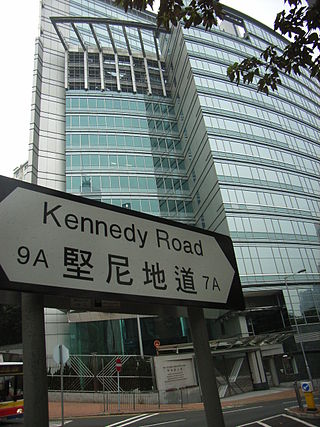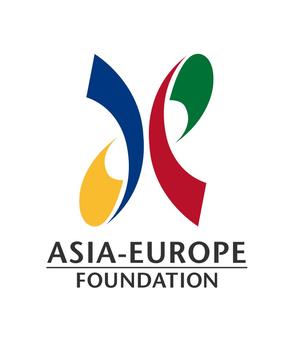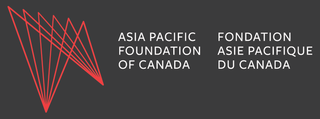
Under the Basic Law, the Hong Kong Special Administrative Region is exclusively in charge of its internal affairs, whilst the central government of China is responsible for its foreign affairs and defence. As a separate customs territory, Hong Kong maintains and develops relations with foreign states and regions, and plays an active role in such international organisations as World Trade Organization (WTO) and the Asia-Pacific Economic Cooperation (APEC) in its own right under the name of Hong Kong, China. Hong Kong participates in 16 projects of United Nations Sustainable Development Goals.

Singapore maintains diplomatic relations with 189 UN member states. The three exceptions are the Central African Republic, Monaco and South Sudan.

The Association of Southeast Asian Nations, commonly as ASEAN, is a political and economic union of 10 states in Southeast Asia. Together, its member states represent a population of over 600 million over a land area of 4.5 million km2 (1.7 million sq mi). The bloc generated a purchasing power parity (PPP) gross domestic product (GDP) of around US$10.2 trillion in 2022, constituting approximately 6.5% of global GDP (PPP). ASEAN member states include some of the fastest growing economies in the world.

Asia-Pacific Economic Cooperation is an inter-governmental forum for 21 member economies in the Pacific Rim that promotes free trade throughout the Asia-Pacific region. Following the success of ASEAN's series of post-ministerial conferences launched in the mid-1980s, APEC started in 1989, in response to the growing interdependence of Asia-Pacific economies and the advent of regional trade blocs in other parts of the world; it aimed to establish new markets for agricultural products and raw materials beyond Europe. Headquartered in Singapore, APEC is recognized as one of the highest-level multilateral blocs and oldest forums in the Asia-Pacific region, and exerts significant global influence.

The Colombo Plan is a regional intergovernmental organization that began operations on 1 July 1951. The organization was conceived at an international conference, The Commonwealth Conference on Foreign Affairs held in Colombo, Ceylon in January 1950, and was attended by the finance ministers of Australia, the United Kingdom, Canada, Ceylon, Pakistan and New Zealand, and the prime ministers of Ceylon and India. Membership has expanded significantly over the years to the current 28 governments.

The International Conference of Asian Political Parties (ICAPP) is a forum of political parties of Asia-Oceanian countries, which was launched in Manila, Philippines in September 2000. The objectives of the conference are to promote exchanges and cooperation between political parties from different countries in the area and with various ideologies; to enhance mutual understanding and trust among Asian countries; to promote Asia's regional cooperation through the unique role and channel of political parties; to create an environment for sustained peace and shared prosperity in the region.

The Intergovernmental Group of Twenty-Four on International Monetary Affairs and Development, or The Group of 24 (G-24) was established in 1971 as a chapter of the Group of 77 in order to help coordinate the positions of developing countries on international monetary and development finance issues, as well as and to ensure that their interests are adequately represented in negotiations on international monetary matters. Though originally named after the number of founding Member States, it now has 28 Members. Although the G-24 officially has 28 member countries, any member of the G-77 can join discussions.

Russell Brunell Trood was a Liberal Party Senator for the state of Queensland, Australia. His surprise election as the third Liberal from Queensland in the 2004 Federal Election, along with 38 other Coalition Senators gave the federal government of John Howard a majority in the Senate and thus control of both houses of Parliament. He did not retain his seat in the 2010 Australian federal election. His term in the senate ended on 30 June 2011.
Jusuf Wanandi, born Lim Bian Kie is a Chinese-Indonesian politician
The Pacific Trade and Development Conference (PAFTAD) is an informal private academic conference series that, since its origins in 1968, has developed into a driving force behind the development of thought on Pacific trade and development issues and important economic policy questions facing the region.

The Asia–Europe Foundation (ASEF) is an intergovernmental not-for-profit organization located in Singapore. Founded in 1997, it is the only institution of the Asia-Europe Meeting (ASEM). Its purpose is to promote mutual understanding and cooperation between the people of Asia and Europe through intellectual, cultural, and people-to-people exchanges.

The Centre for Strategic and International Studies (CSIS) is a non-profit organization based in Indonesia which has served as a think tank on social, international, political and economical issues. CSIS was founded on Sept 1, 1971 by a group of Indonesian colleagues who hoped to promote public policy-oriented discussions in Indonesia. Founders of the organization included Harry Tjan Silalahi, Jusuf Wanandi, Hadi Soesastro, and Clara Joewono. It also had strong support from key figures close to the government at the time including generals Ali Moertopo, Soedjono Hoemardani, and Benny Moerdani. It was founded to give advice, ideas and support to government and other stakeholders such as parliament, political parties, businesses and NGOs and to reach out to the regional and international communities and to develop awareness of Indonesian policies and its state of development, while giving feedback to the Indonesian government on domestic and international developments.

The Asia/Pacific Group on Money Laundering (APG) is a FATF style regional inter-governmental (international) body, the members of which are committed to effectively implementing the international standards against money laundering, the combating the financing of terrorism (CFT) and financing the proliferation of weapons of mass destruction. APG was founded in 1997 in Bangkok, Thailand, and currently consists of 42 member jurisdictions in the Asia-Pacific region and a number of observer jurisdictions and international/regional observer organisations.
APEC Australia 1989 was composed of a series of political meetings held around Australia between the 12 member economies of the Asia-Pacific Economic Cooperation. These meetings were the first of a series of meetings and were held between 5 and 7 November 1989 in Canberra, the capital of Australia.

The Economic Research Institute for ASEAN and East Asia or ERIA is an international organization established in Jakarta, Indonesia in 2008 by a formal agreement among Leaders of 16 countries in the East Asian region to conduct research activities and make policy recommendations for further economic integration in the East Asia. ERIA works very closely with both the ASEAN Secretariat and 16 Research Institutes to undertake and disseminate policy research under the three pillars, namely “Deepening Economic Integration”, ”Narrowing Development Gaps”, and “Sustainable Development” and provide analytical policy recommendations to Leaders and Ministers at their regional meetings. ERIA provides intellectual contributions to East Asian Community building and serves as a Sherpa international organization. ERIA Ranks 9th among the world's "Top International Economics Think Tanks" according to the 2020 Global Go To Think Tanks Index Report conducted by the University of Pennsylvania.

The Asia Pacific Foundation of Canada, created by an Act of Parliament in 1984, is an independent, not-for-profit think-tank on Canada's relations with Asia.

The Asian Socialist Conference (ASC) was an organisation of socialist political parties in Asia that existed between 1953 and 1965. It was established in an effort to build a Pan-Asian multinational socialist organization, clearly independent from earlier European colonial centres, yet free from the new superpowers of the Cold War.
Randolph Bruce Mank is a global business executive and a three-time former Canadian ambassador. He founded MankGlobal Inc. consultancy in 2015.
The Global Forum on Migration and Development (GFMD) is a state-led, informal and non-binding process, which helps shape the global debate on migration and development. It provides a flexible, multi-stakeholder space where governments can discuss the multi-dimensional aspects, opportunities and challenges related to migration, development, and the link between these two areas. The GFMD process allows governments - in partnership with civil society, the private sector, the UN system, and other relevant stakeholders – to analyze and discuss sensitive issues, create consensus, pose innovative solutions, and share policy and practices.
Andy Rachmianto, is a career diplomat and government official. He is now Director-General for Protocol and Consular Affairs/Chief of State Protocol, Ministry of Foreign Affairs, Republic of Indonesia.













